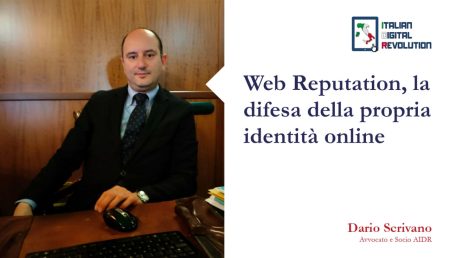(by Dario Scrivano - lawyer and Aidr partner) There is a term, which has entered the common vocabulary in recent years first and then, on Treccani: googlare. The verb in question indicates much more than the mere action of searching on the web, but it embraces a broader concept, that of confirming our initial perception. To really understand its strength and innovative scope, just look at our daily actions: I saw a product, I heard the name of a certain place on the radio, they spoke highly of a certain dentist, in all these situations, the action that immediately follows the first impulse (to use a term dear to marketing) is to search for confirmation online and precisely google: the name of the place in question, or of the health professional, or of the specific product, to return to the above example.
In our online journey, in search of confirmations and positive reviews (marketing professionals would call this phase Zero Moment of Truth (ZMOT), we come across a series of information, the result of reviews and opinions of others, left in the large free space of the web. Already the free space of the web, a world without constraints and barriers that risks being also a world without rules. In fact, what would happen if, to go back to the example above, googling on the web I came across a series of negative reviews about the professional health care provider I was looking for information about, what effects would they have on my choice, what effects would they have on the reputation of the healthcare professional in question?
Here we come to perhaps the thorniest node of web reputation, which includes not only all the information that we personally provide on the web or on our social accounts: photos, videos, thoughts shared freely, but also what others more or less knowingly, more or less voluntarily they write about us. Photos published by others, reviews left on dedicated portals, posts published on your account that refer to a specific product, articles written on blogs. The examples tend to be endless, as well as the opportunities that the web offers to express oneself.
What prompted that person to tell the experience in negative terms, what were the expectations of the buyer on the product? In reality the variables are many and often and willingly, it becomes difficult for the customer who reads a comment or a review on the web, to be able to grasp the thousand nuances that lie behind a sentence and that are summarized in a negative review, or in a I do not like, rather than in an emoticon with an angry expression, or in a coincidence I do not recommend it. But who controls all this amount of information, what can we really do to protect ourselves? True, the web is indeed a virtual world, but not free from the laws, so in theory, we can enforce the same principles and the same rules that govern in the real world the right to image, reputation, and equally the protection from defamation. . Unfortunately, however, it is not always that simple.
Even more torturous is the right to be forgotten, the sacrosanct request not to be branded for life online, to have data and information deleted, which no longer correspond to our identity. The constant monitoring, the construction of the web reputation thus become essential elements for the private citizen and even more so for companies.
